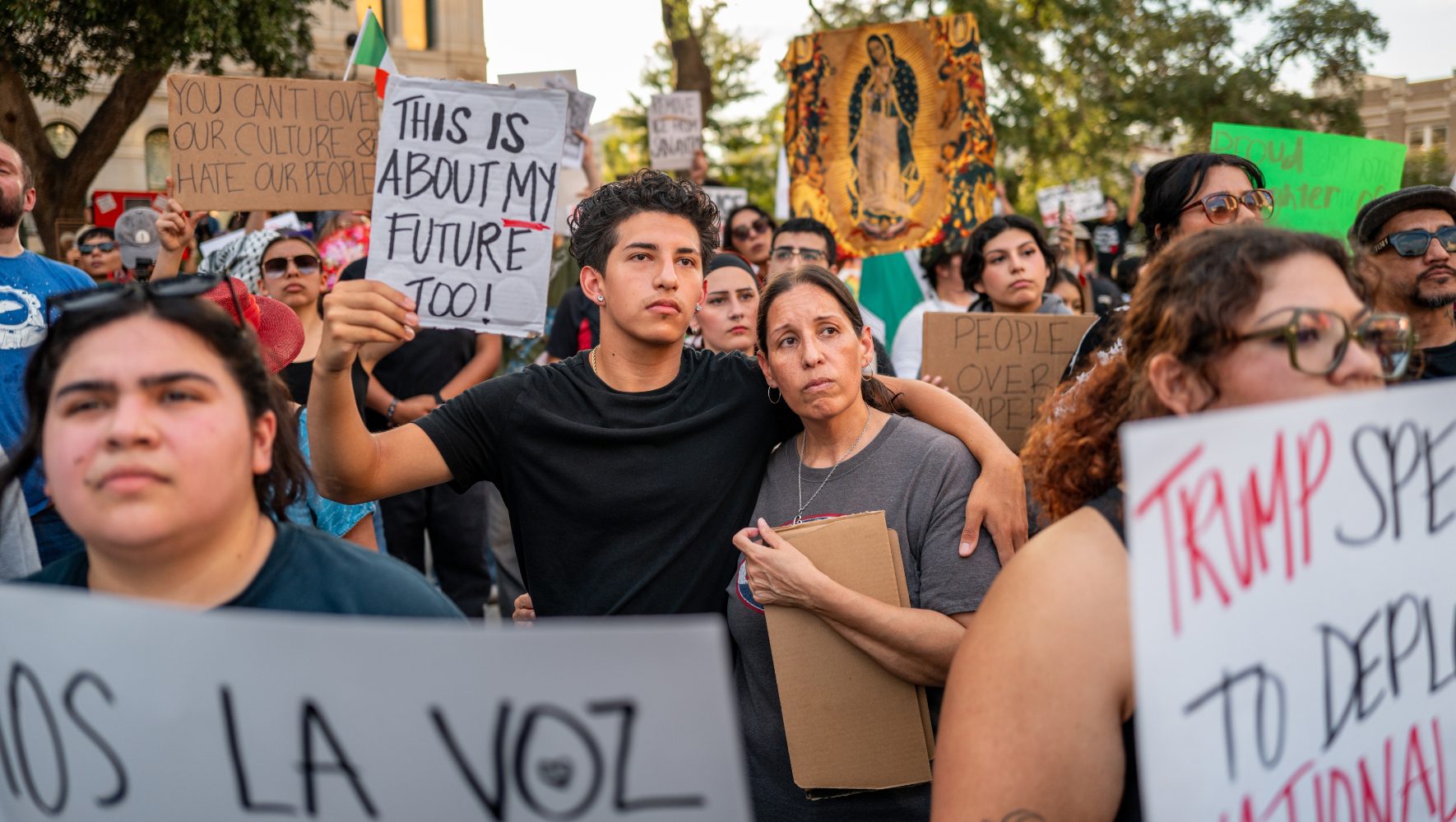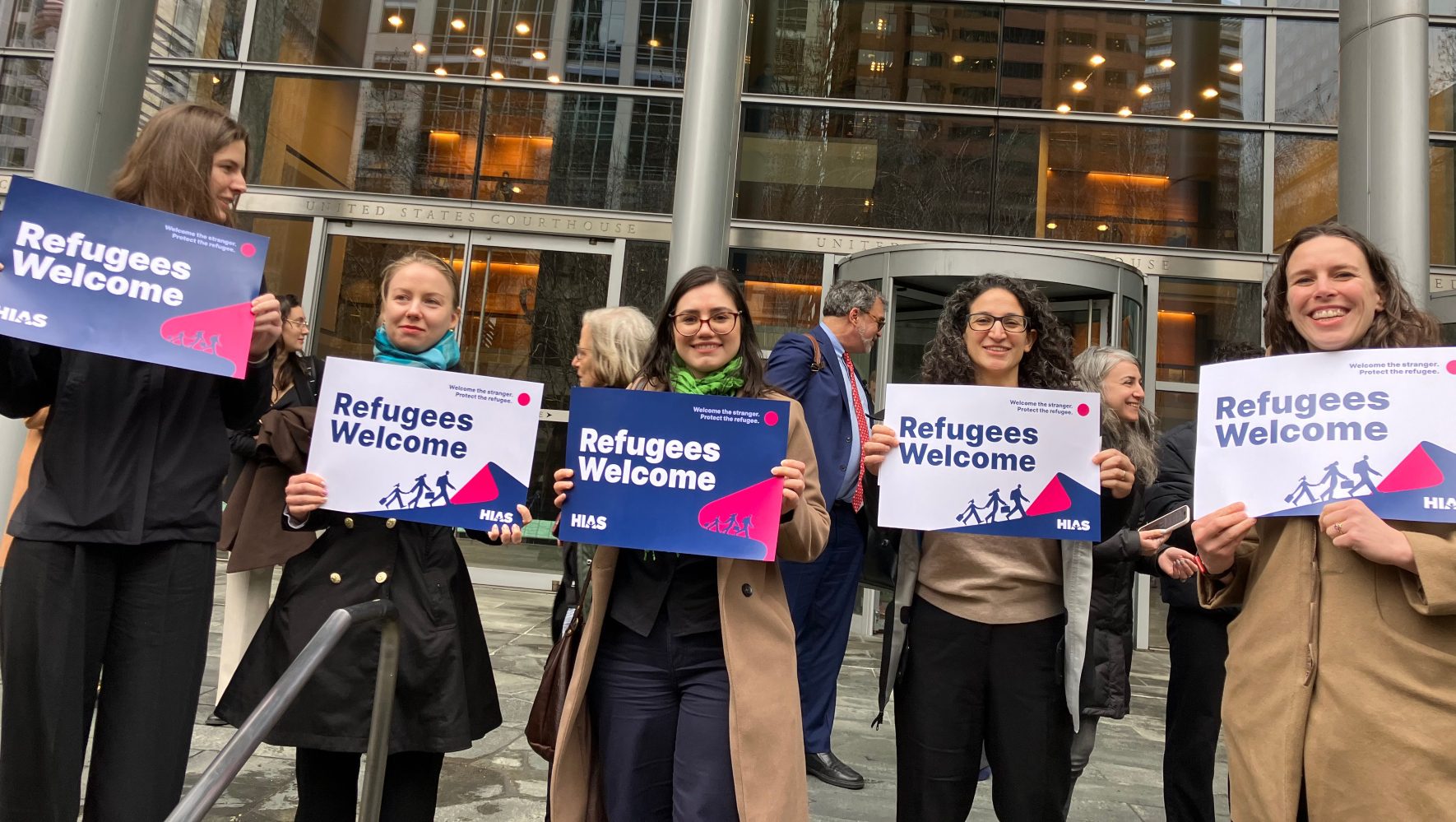HIAS Statement to the House Committee on the Judiciary on H.R. 2431
May 18, 2017
Statement submitted to the Committee on the Judiciary of the
U.S. House of Representatives
Markup of HR2431, “The Michael Davis, Jr. and Danny Oliver in Honor of State and Local Law Enforcement Act”
Hearing on May 18, 2017
The Michael Davis, Jr. and Danny Oliver in Honor of State and Local Law Enforcement Act, HR2431, unwisely delegates the enforcement of our national immigration laws to state and local law enforcement agencies despite demonstrated instances of profiling and subsequent weakening of community safety. Enforcement of immigration laws by local law enforcement increases distrust of the police by immigrant populations, which may negatively impact their willingness to seek assistance from the police. Enforcement of immigration law will also divert police attention and resources, making the community as a whole less safe.
Additionally, HR2431 negatively effects individuals fleeing persecution including refugees, asylum seekers, and stateless people, by worsening expansive laws targeting terrorism that adversely impact law abiding asylees and refugees.
In 2001, Congress enacted legislation that significantly broadened the definition of “terrorist activity” and “terrorist group.” The law currently defines terrorist activity to include any amount and all types of support to terrorists even if the support is coerced. “Terrorist group” is so broadly defined that even resistance movements against brutal regimes are considered terrorist groups – even in cases where the resistance is supported by the U.S. These provisions are known as “TRIG” or “material support provisions.” TRIG provisions are so broad that activities that have no real life connection to terrorism are considered terrorist activities. Under current law, the survivors of the Warsaw Ghetto uprising or Iraqis that fought alongside Coalition forces against Saddam Hussein would be considered terrorists. Paying ransom to recover a kidnapped child or being forced to cook and clean by rebels that murdered family members have been considered terrorist activities. The impact of these laws has already been felt by refugees with legitimate claims for asylum.
Refugees that are found to have provided material support under TRIG provisions are barred from entering the U.S. Additionally, refugees already living in the U.S. can be barred from obtaining green cards and being reunited with families. Congressional action changed these provisions to allow the President to create exemptions, however implementation of exemptions has been slow and thousands of refugees have been left in limbo.
Instead of addressing the flaws with the current system, Sections 202 and 203 of HR2431 proposes to expand the current law. The Michael Davis, Jr. Act proposes to use TRIG provisions as a bar to finding good moral character, which will prevent law-abiding refugees that have lived in the United States for years from naturalization. Until the flaws in the system are addressed, provisions like this will compound harm to refugees and asylum seekers.
Furthermore, Section 610 would increase the unnecessary detention of immigrants—including refugees and asylum seekers—by eliminating the current prohibitions on indefinite detention. Many individuals and families in immigration detention in the U.S. are victims of persecution and torture in their home countries. This section also directs that DHS detention facilities be governed by standards determined by DHS, and would not require specific licensing standards, significantly weakening basic detention standards currently in place.
Section 311 of the HR2431 creates new grounds for admissibility and deportation. Under the proposed language, anyone that the government “knows or has reason to believe” is or was a criminal gang member or participated in activities of a criminal gang knowing or having reason to know that such activities would promote, further, aid or support the illegal activity of the gang would be inadmissible. Asylum, temporary protected status and special immigrant juvenile visas would be unavailable to anyone suspected of being a current member or former member of a criminal gang.
The language creating new grounds for inadmissibility for gang members is over-inclusive and vague. The bill does not require a criminal conviction in order to establish membership or association with a gang. The bill does not provide factors that must be considered in determining membership or association nor does the bill provide any guidance on how to overcome the assumption that a person is a member of a gang. Thus, guilt can be established through the opinion of a government official and even living in the wrong neighborhood could potentially be enough to keep an otherwise eligible person out of the U.S.
Similar to the TRIG provisions, HR2431 does not take into account actions that were the result of coercion or duress. People that are forced to participate in gang activity could be denied admission or deported. As a result, the new inadmissibility grounds will most likely require exemptions and waivers to ensure that otherwise eligible refugees and asylees are not denied status, a “solution” that has been difficult and slow to implement for the TRIG provisions.
The effect of this language would be felt immediately by those fleeing the Northern Triangle and other dangerous regions, where forced conscription by gangs is a primary push factor. By virtue of being from dangerous regions, it could be “reasonably believed” that a person was a criminal gang member or participated in gang activity regardless of whether they were ever criminally convicted. Additionally, victims of sex trafficking could be negatively impacted if they were forced to engage in commercial sex for the benefit of the gang.
Lastly, Section 608 would transfer the authority to extend Temporary Protected Status (TPS) designation away from the Secretary of DHS and to Congress, and would change the lawful status of TPS grantees as persons not considered ‘admitted’ under our immigration laws. TPS was included as part of the Immigrant Act of 1990 to regularize the process by which the U.S. government provides stays of deportation and employment authorization to foreign nationals already in the country that cannot safely return to their home countries due to extraordinary conditions such ongoing armed conflict or environmental disasters.
Security and safety is a vital part of any immigration policy. However, new legislation that includes overly broad inadmissibility grounds that fail to take into consideration the legal obligations of the U.S. to protect asylees and refugees should not be enacted.



